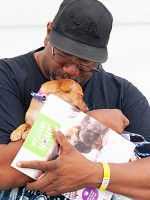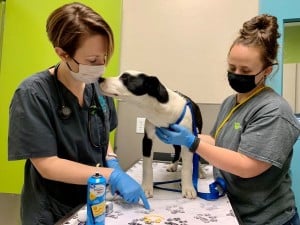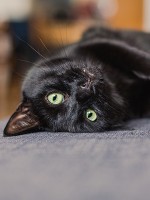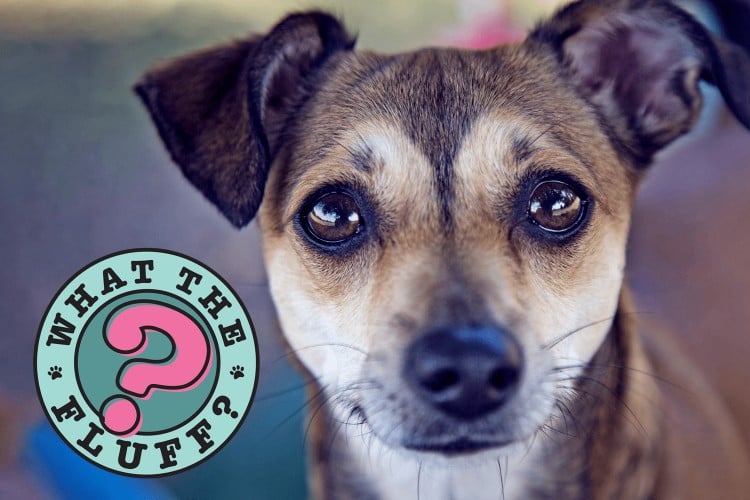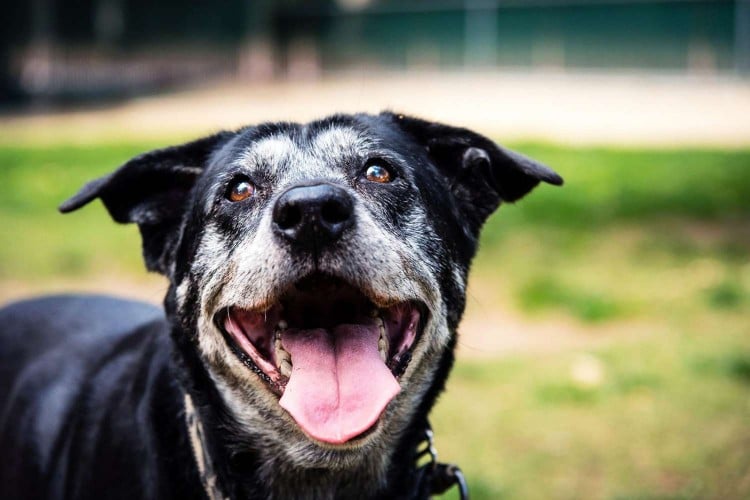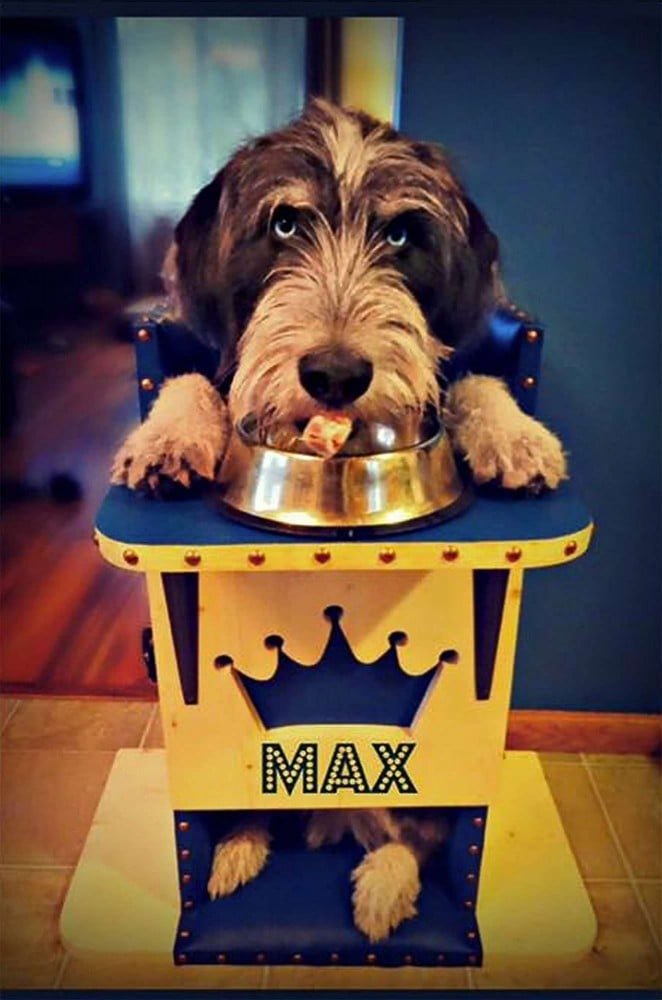Is a Dog's Mouth Actually Cleaner Than a Human's?
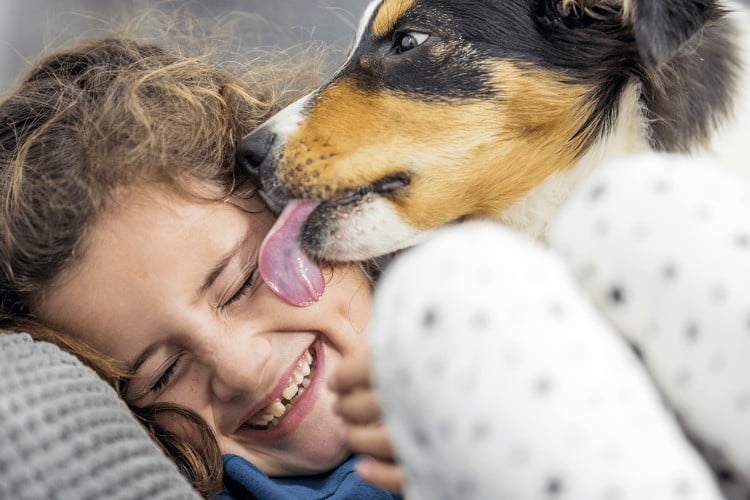
Some dogs like to give wet, sloppy "kisses" to their humans. While the loving sentiment is sweet, you might wonder if your pup is actually slathering you with harmful germs. There's an old saying that a dog's mouth is cleaner than a human's. But is it true? We asked Leslie Bass, DVM, veterinarian and medical director of VCA Algiers Animal Hospital in New Orleans, to give us the lowdown on dog saliva.
Bacteria in Dog Mouths vs Human Mouths
The mouths of canines and humans have billions of microorganisms that include bacteria, fungi, and viruses. Some of these germs are helpful while others can be detrimental. One family of bacteria that we have in common is Porphyromonas, which causes periodontal disease (infection and irritation of the gums), Bass says. The type of Porphyromonas bacteria that's harmful to people is P. gingivitis while in canines it's P. gulae.
Why Do Dogs Lick Their Humans? A Vet Explains
Can You Get Sick From Your Dog's Germs?
Some germs can transfer from dogs to people and cause illness. When germs are able to pass between animals and humans, they're called zoonotic diseases. For instance, rabies is a viral infection you can get from a dog's mouth (usually by a bite). According to the Centers for Disease Control and Prevention though, rabies is rarely found in U.S. canines.
"Most germs in your dog's mouth aren't zoonotic, which means they don't typically spread disease to you and your family," Bass says. "However, pets may eat fecal material and other items you wouldn't want to expose yourself to. So you may want to avoid 'kisses.'"
Is It Good for Dogs to Lick Wounds?
It's a natural instinct for dogs to lick their wounds. And researchers have found that dog saliva does contain substances that are anti-inflammatory, antibacterial, and help speed the healing process. However, too much of a good thing can have the opposite effect.
When dogs bite or lick areas of irritation excessively, it damages the skin and can lead to infection. For instance, dogs that constantly lick one itchy spot develop hot spots (open wounds). That's why dogs wear those cone-shaped Elizabethan collars (e-collars) after having surgery. It keeps them from licking and biting at their incision, which could introduce germs that cause infection.
Avoid letting your dog lick any wounds on you, too. While in ancient times this might have been helpful to remove dirt, there are much better (and safer) ways to care for injuries these days. Follow typical first-aid steps—clean your wound with soap and water, apply an antibacterial ointment, and put a bandage on.
How to Keep Your Dog's Mouth Clean
Just like in people, oral care is an important part of a dog's health. "If left unattended, bacteria can build up and cause issues for pets like gingivitis, tooth-root abscesses, and bone loss," Bass says. Veterinarians recommend regularly brushing your pet's teeth.
If you get your dog as a puppy, start brushing your pup's teeth right away to get him used to it. Have an older dog? Try introducing your pooch to tooth brushing. But if it doesn't work out, don't worry. There are dental chews that can help keep your dog's teeth clean without it being a fight (though nothing is as beneficial as daily brushing). Look for a product that's received approval from the Veterinary Oral Health Council (VOHC), which ensures it reduces plaque and tartar.
Also, don't skip out on your doggo's dental exam and cleaning. Typically, veterinarians recommend an annual visit but ask your vet what's best for your pet, says Bass. Good dental care is essential for your pup to feel good now and to keep a full set of chompers throughout life.

